
OR
India records world’s biggest single-day rise in coronavirus cases
Published On: April 22, 2021 01:43 PM NPT By: Reuters
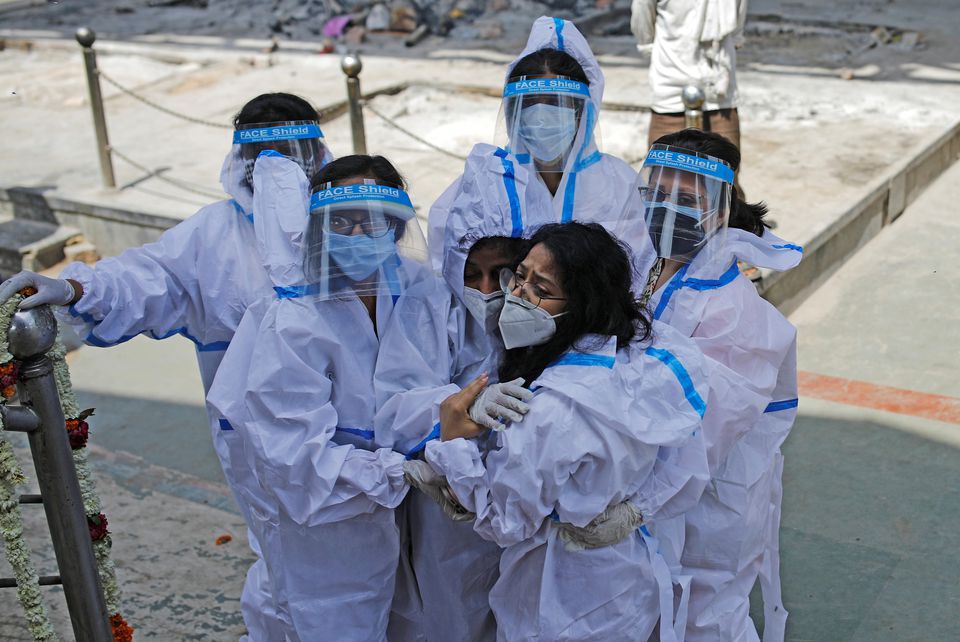
NEW DELHI, April 22: India marked a grim milestone in the COVID-19 pandemic on Thursday, reporting 314,835 new daily cases, the highest one-day tally anywhere, as its second wave and similar surges elsewhere raised new fears about the ability of health services to cope.
Hospitals across northern and western India including the capital, New Delhi, have issued notices to say they have only a few hours of medical oxygen required to keep COVID-19 patients alive.
More than two-thirds of hospitals had no vacant beds, according to the Delhi government's online data base and doctors advised patients to stay at home.
"The situation is very critical," Dr Kirit Gadhvi, president of the Medical Association in the western city of Ahmedabad, told Reuters.
"Patients are struggling to get beds in COVID-19 hospitals. There is especially acute shortage of oxygen."
Krutika Kuppalli, assistant professor at the Division of Infectious Diseases, Medical University of South Carolina in the United States, said on Twitter the crisis was leading to a collapse of the healthcare system.
The previous record one-day rise in cases was held by the United States, which had 297,430 new cases on one day in January, though its tally has since fallen sharply.
India’s total cases are now at 15.93 million, while deaths rose by 2,104 to reach a total of 184,657, according to the latest health ministry data.
Television showed images of people with empty oxygen cylinders crowding refilling facilities in the most populous state of Uttar Pradesh as they scrambled to save relatives in hospital.
"We never thought a second wave would hit us so hard," Kiran Mazumdar Shaw, the executive chairman of Biocon & Biocon Biologics, an Indian healthcare firm, wrote in the Economic Times.
"Complacency led to unanticipated shortages of medicines, medical supplies and hospital beds."
Delhi Health Minister Satyendar Jain said there was a crisis over the shortage of intensive care unit beds, with the city needing about 5,000 more than it could find. Some hospitals had enough oxygen to last 10 hours, others just six.
"We can't call this a comfortable situation," he told reporters.
Similar surges of infections elsewhere around the world, in South America in particular, are threatening to overwhelm other health services.
India has launched a vaccination drive but only a tiny fraction of the population has had the shots.
Authorities have announced that vaccines will be available to anyone over the age of 18 from May 1 but India won't have enough shots for the 600 million people who will become eligible, experts say.
Health experts said India had let its guard down when the virus seemed to be under control during the winter, when new daily cases were about 10,000, and it lifted restrictions to allow big gatherings.
Prime Minister Narendra Modi's government ordered an extensive lockdown last year, in the early stages of the pandemic, but has been wary of the economic costs of tough restrictions.
In recent weeks, the government has come in for criticism for holding packed political rallies for local elections and allowing a religious festival at which millions gathered.
This week, Modi urged state governments to use lockdowns as a last resort. He asked people to stay indoors and said the government was working to increase the supply of oxygen and vaccines.
Experts say new virus variants, in particular a "double mutant" variant that originated in India are largely responsible for the new spikes in cases.
"The double mutant ... is considerably more infectious than the older strain of virus," said Gautam I. Menon, a professor at Ashoka University.
Angela Rasmussen, a virologist at the Center for Global Health and Science Security at Georgetown University said the situation in India was "heartbreaking and awful".
“It’s the result of a complex mix of bad policy decisions, bad advice to justify those decisions, global and domestic politics, and a host of other complex variables,” she said on Twitter.
You May Like This
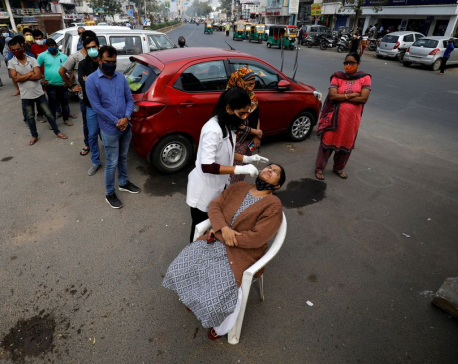
India reports over 3.33 lakh new COVID-19 cases, daily positivity rate at 17.78 pc
NEW DELHI, Jan 23: India reported 3,33,533 new COVID-19 cases in the last 24 hours, taking the active caseload to... Read More...
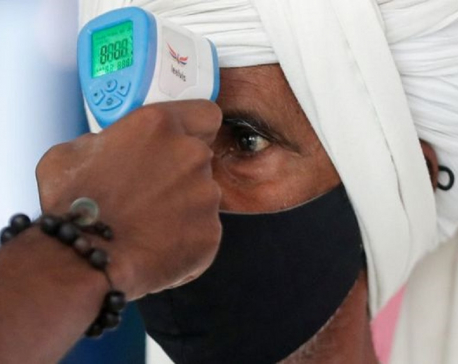
Maharashtra considers total lockdown as virus cases jump
MUMBAI/ NEW DELHI, March 29: India’s richest state, Maharashtra, is considering imposing a strict lockdown this week after recording the... Read More...
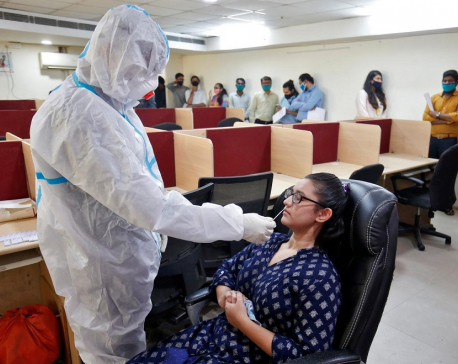
India coronavirus caseload crosses 4M, stretching resources
NEW DELHI, Sept 5: India’s coronavirus cases crossed 4 million on Saturday, leading the world in new infections and deepening... Read More...


Just In
- Kathmandu continues to top the chart of world’s most polluted city
- JSP Central Executive Committee meeting today
- Ambassador Adhikari presents his letter of credentials to Turkish President Erdoğan
- Bajhang by-election: Construction of Taklakot Road is common election agenda of candidates
- Meeting of Finance Committee being held today to discuss 2025/25 budget
- Stakeholders call for transparency as Beijing pushes for early implementation of BRI projects in Nepal
- Special Court orders judicial custody for Sunil Paudel over illegal wealth acquisition charges
- District Court Rautahat sentences four individuals including Aftab Alam to life imprisonment










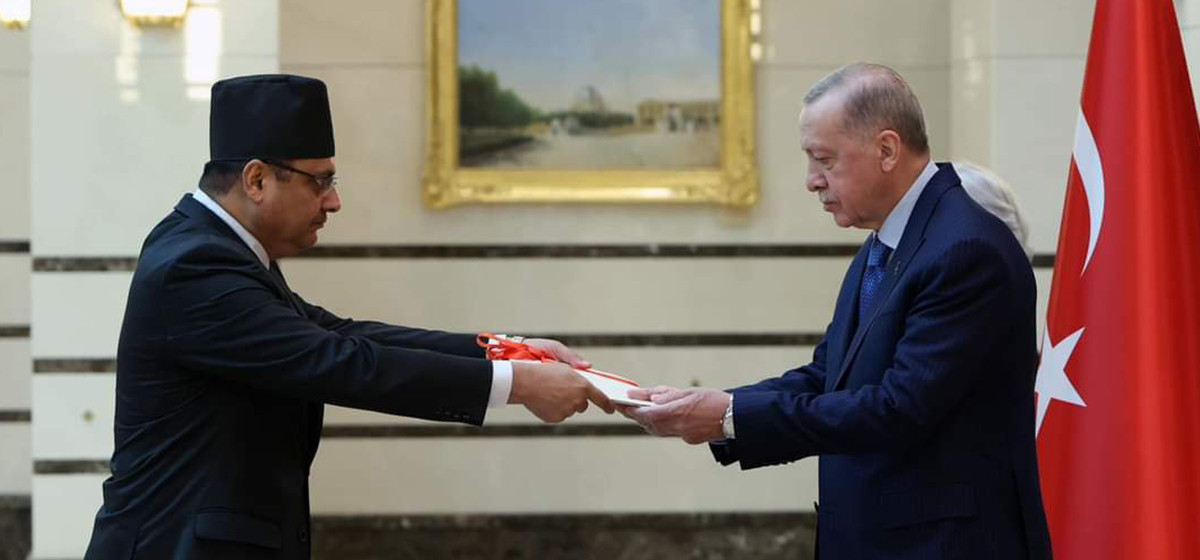
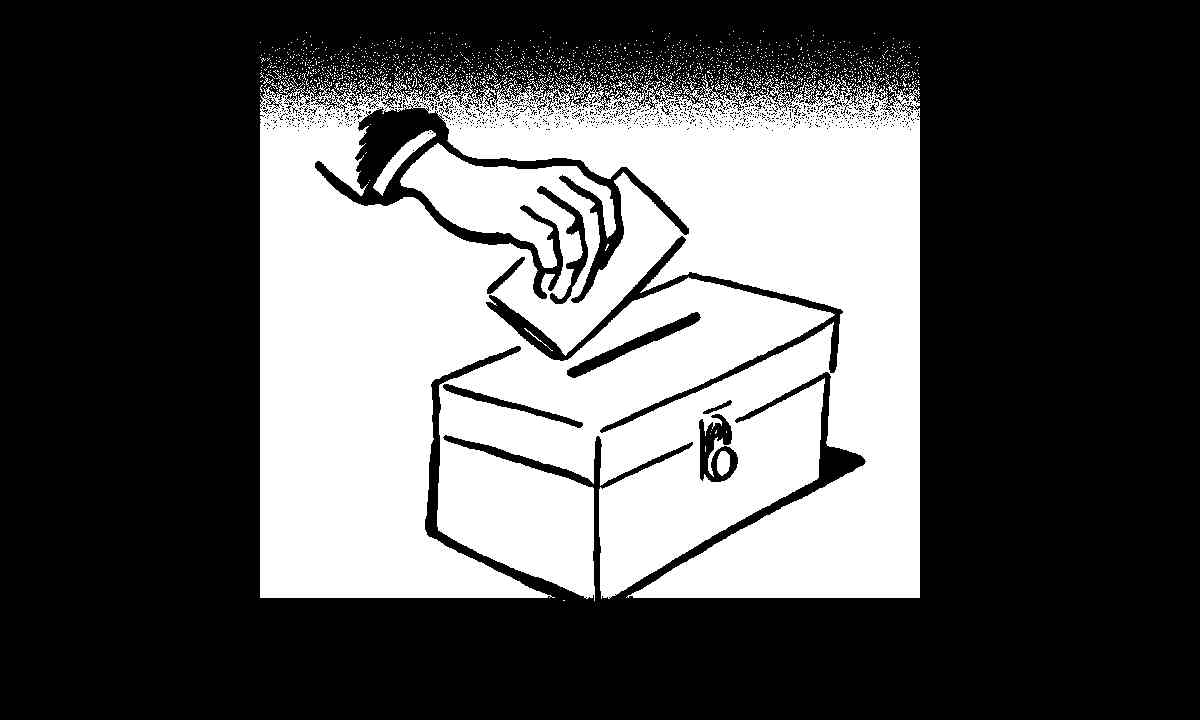
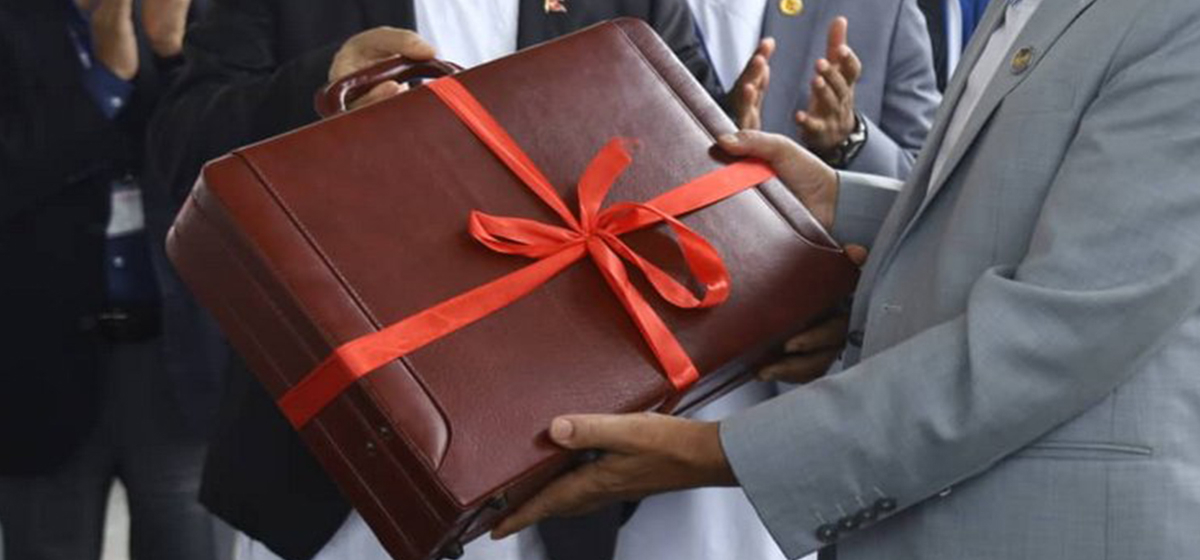

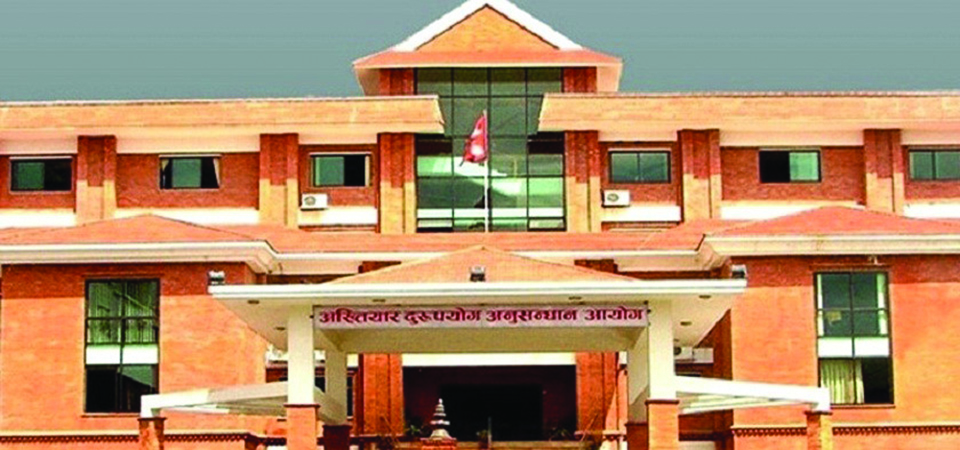

Leave A Comment